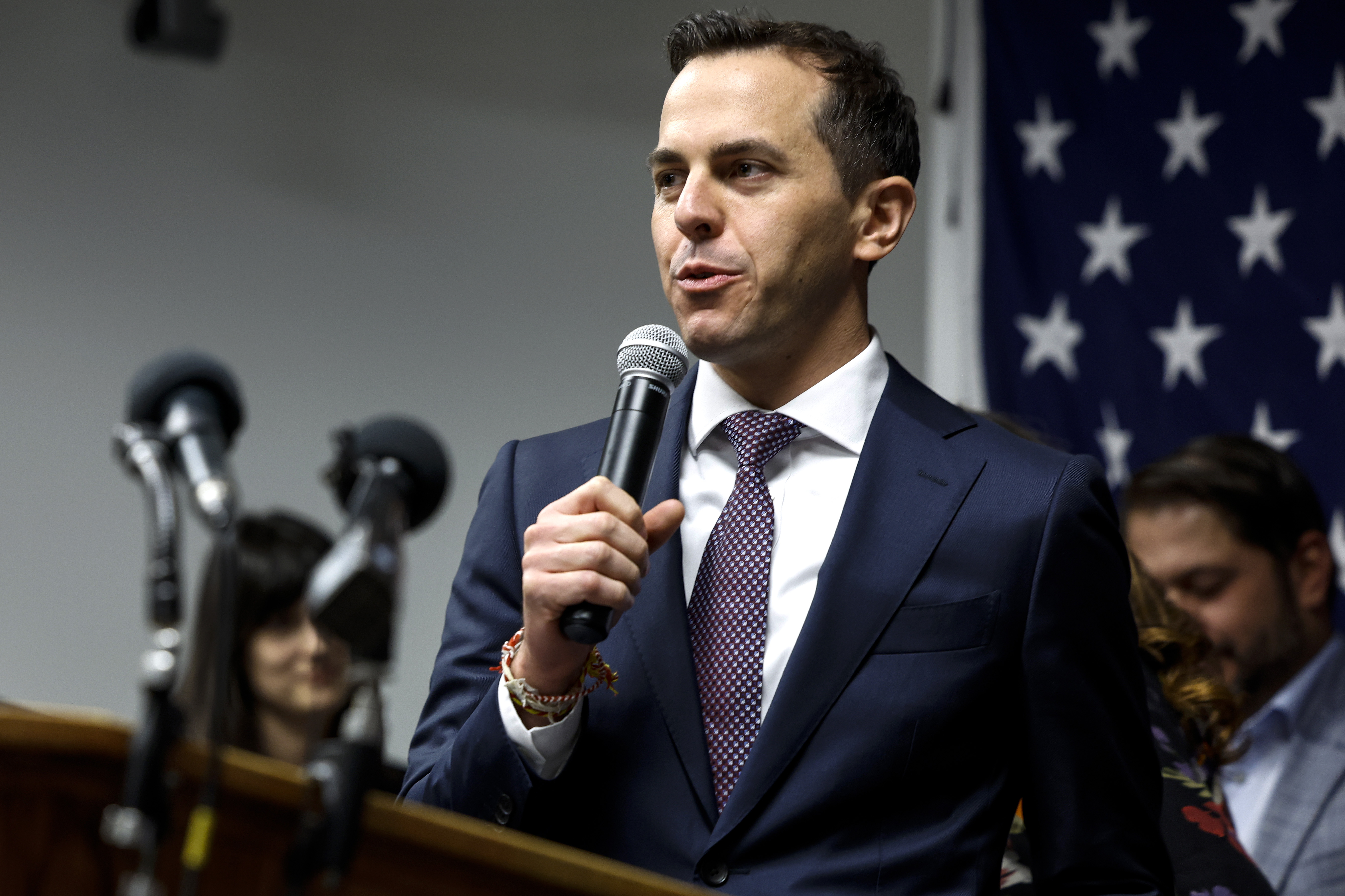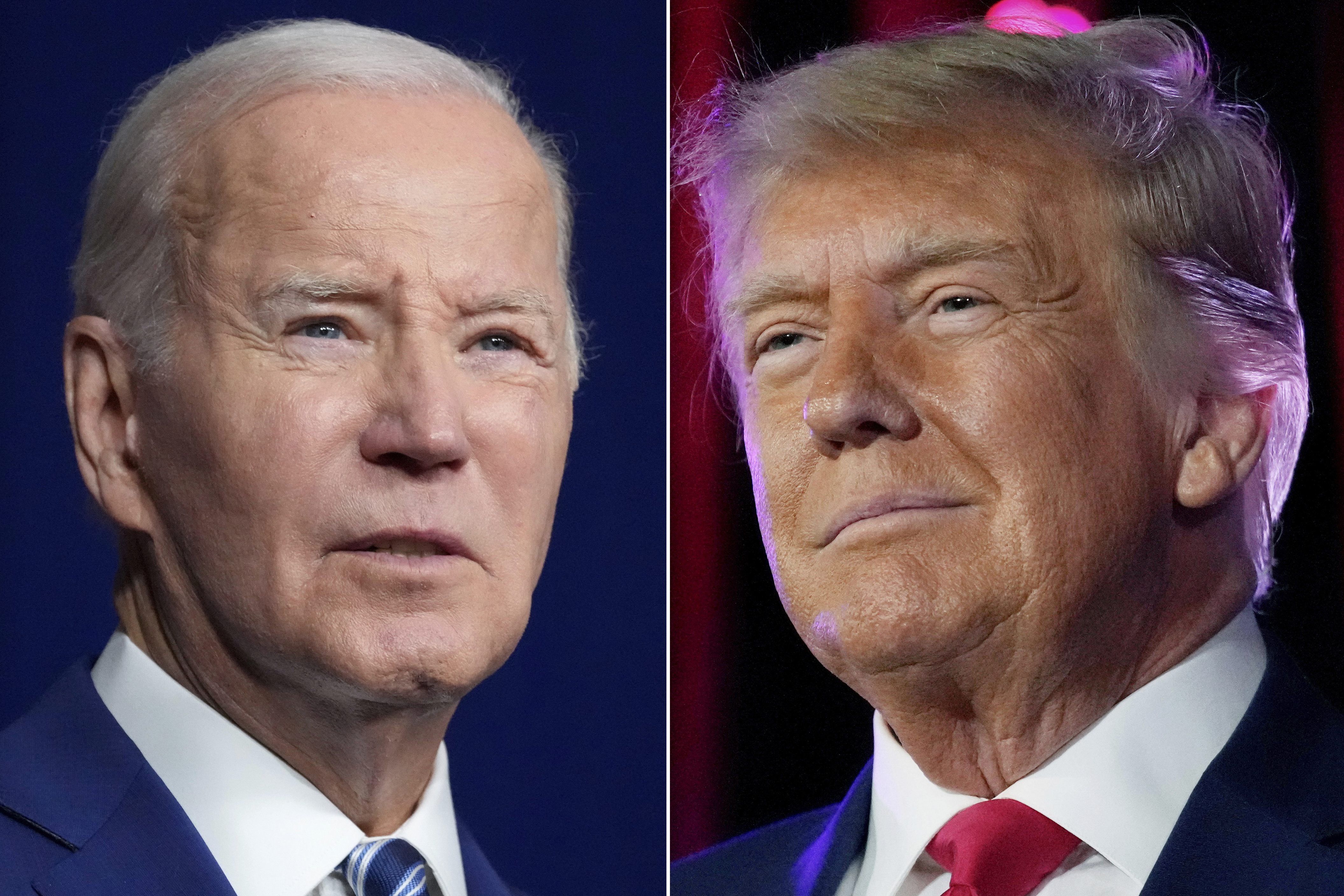What to Know
- Democratic Rep. Andy Kim and Republican Curtis Bashaw have won their New Jersey U.S. Senate primaries for the seat currently held by embattled Sen. Bob Menendez.
- Kim is a three-term congressman who launched his campaign after federal corruption charges against Menendez were announced last year. Bashaw is a wealthy hotel operator who bested a rival backed by former President Donald Trump.
- Menendez will also be on the general election ballot in November after declaring his intention to run as an independent. The turmoil surrounding him has created the possibility of a headache for Democrats in a state where they haven’t lost an election for Senate since 1972.
Get full New Jersey primary results
Voters headed to the polls across New Jersey on Tuesday to vote in the Republican and Democratic primaries for a number of federal elections.
New Jersey holds its gubernatorial and state legislative elections in odd years, so there are only federal races in this primary.
Get top local stories in Philly delivered to you every morning. >Sign up for NBC Philadelphia's News Headlines newsletter.
New Jersey has a closed primary system, which means that only voters registered with a political party may participate in that party’s primary. Democrats could not vote in the Republican primary or vice versa. Independent or unaffiliated voters can not participate in either primary but can vote on local ballot questions.
A different looking ballot
The early jockeying between first lady Tammy Murphy, who has since suspended her campaign, and front-runner Rep. Andy Kim led to a ruling that eliminated the party line for at least the primary. The party line is a ballot design specific to New Jersey that displays candidates endorsed by county parties in one column, which opponents argue creates an advantage for party-backed candidates.
New Jersey allows absentee ballots postmarked by election day to arrive up to six days later, so the number of absentee ballots cast in the primary will not be known until June 10. A close contest in which the number of absentee ballots could impact the outcome could delay a race call.
New Jersey does not have automatic recounts, but candidates and voters may request and pay for them. The cost of the recount is refunded if the outcome changes.
NBC10 has you covered with live updating election results from all of the races that matter to you. You can find all of our live updating NJ primary election results here.
Below are a list of some of the key contested races across the Garden State. Polls closed at 8 p.m. on June 4, 2024, and results are filtering in.
Parties pick candidates to battle it out to try and replace U.S. Sen. Bob Menendez as he faces corruption charges
Voters in New Jersey on Tuesday chose candidates vying to replace Democratic Sen. Bob Menendez, who is on trial in federal court in New York on corruption charges and has opted not to run in the state’s Democratic primary.
Menendez, who has held the seat for more than 18 years, filed to run as an independent candidate on Monday, the day before the primary. He had previously said he would consider running as an independent if he is acquitted.
With the party line gone, Rep. Andy Kim appeared to consolidate Democratic support statewide, projected to easily beat labor leader Patricia Campos-Medina and activist Lawrence Hamm in the primary.
Kim, a three-term congressman who launched his campaign after charges against Menendez were announced last year, rose to the top in the state’s dominant political party over a relatively short period. A former Obama administration national security official, he defeated an incumbent Republican in a 2018 House race and won a court ruling this year that toppled a unique-to-New Jersey system widely viewed as giving political bosses influence on who wins primaries.
“Leadership is not about the volume of one’s voice. It’s about the actions that they take,” Kim said in a phone interview. “People are hungry for a new generation of leadership to step up. They are hungry for a change, in our broken politics.”
On the Republican side, the Senate primary was among four candidates: leading Republican fundraiser Curtis Bashaw, Navy veteran Albert Harshaw, former Tabernacle Deputy Mayor Justin Murphy and Mendham Borough Mayor Christine Serrano Glassner.
Bashaw was projected to win. Bashaw, a wealthy hotel developer, spent hundreds of thousands of dollars of his own money on the campaign to defeat Mendham Borough Mayor Christine Serrano Glassner, who had former President Donald Trump’s endorsement.
Democrats’ tenuous hold on control of the Senate means they can hardly afford a competitive race in a state widely viewed as safe for the party. It’s unclear how Menendez’s trial will end up and how his candidacy could affect the race. Republicans are eager to exploit his run as a wedge to divide the Democratic vote.
“New Jersey families deserve better than this one-party Democratic monopoly that has represented them for far too long in Washington,” Bashaw said.
Key storylines in U.S. House contests
In running for the Senate, Kim is vacating the 3rd Congressional District seat he’s held since 2019. The race to replace him has drawn five Democratic candidates. Kim ousted the Republican incumbent in that district in 2018 in one of the midterms’ closest races, but the district has since been redrawn post-census to be more favorable for Democrats, so the candidate who emerges from the primary is likely to be favored in the fall.
In the 3rd Congressional District, most of the votes normally come from Burlington County. The district also includes parts of Mercer and Monmouth counties.
The NBC10 Decision Desk projected Herb Conaway as the Democratic winner and Rajesh Mohan as the Republican winner.
The other U.S. House race to watch is in the 8th District, where first-term Rep. Rob Menendez, son of the current senator, faced a tough challenge from Hoboken Mayor Ravi Bhalla. Bhalla nearly matched Menendez in fundraising, with $1.625 million to the incumbent’s $1.642 million, in the New York City suburban district.
In the 8th Congressional District, the key county to watch was Hudson. Bhalla is currently the mayor of the county’s fourth-largest municipality, so his margin in that county was important to his overall performance in the district. The district also includes of Essex and Bergen counties.
The NBC News Decision Desk projected Menendez would hold off Bhalla. On the Republican side, Anthony Valdes ran unopposed.
Other projected winners included Democratic Rep. Donald Norcross -- who ran unopposed -- and Republican challenger Teddy Liddell in the 1st Congressional District.
In the 2nd District, which covers parts of the Jersey Shore, Republican Rep. Jeff Van Drew ran unopposed, while the Democratic battle between frontrunners Joe Salerno and Tim Alexander remained too close too call.
Noncompetitive primaries for president
Former President Donald Trump, a Republican, and President Joe Biden, a Democrat, unofficially sealed their parties’ nominations on March 12. They were both on the ballot on Tuesday and earned more delegates. For Trump, Tuesday marks the first primaries since he became the first former American president to be convicted of felony crimes.
Trump was projected to win about 98% of GOP votes.
The Democratic ballot included Biden, anti-abortion activist Terrisa Bukovinac and, in most counties, an uncommitted option.
There was an effort to get Democratic voters to vote for “Uncommitted” to protest Biden’s policies on the Israel-Hamas war in Gaza. Uncommitted will be on the ballot across the state except for a portion of Ocean County, where supporters didn’t field enough delegates.
NBC News projected that Biden won nearly 88% of the vote as of Wednesday morning, while Uncommitted got nearly 9%.
New Jersey’s 126 pledged Democratic delegates are allocated according to the national party’s standard rules. Twenty-eight at-large delegates are allocated in proportion to the statewide vote, as are 14 PLEO delegates, or “party leaders and elected officials.” The state’s 12 congressional districts have a combined 84 delegates at stake, which are allocated in proportion to the vote results in the state’s 20 delegate districts. Candidates must receive at least 15% of the statewide vote to qualify for any statewide delegates, and 15% of the vote in a delegate district to qualify for delegates in that district.
There are 12 delegates at stake in the Republican presidential primary. All delegates will be awarded to the winner of the statewide vote. Most states that hold primaries within 45 days of the national convention agreed that their delegates would not be bound to any particular candidate, per Republican National Committee rules. However, New Jersey chose to keep its delegates bound, prompting the RNC to cut its total delegate count from nearly 50 to just 12.
Sign up for our Breaking newsletter to get the most urgent news stories in your inbox.



